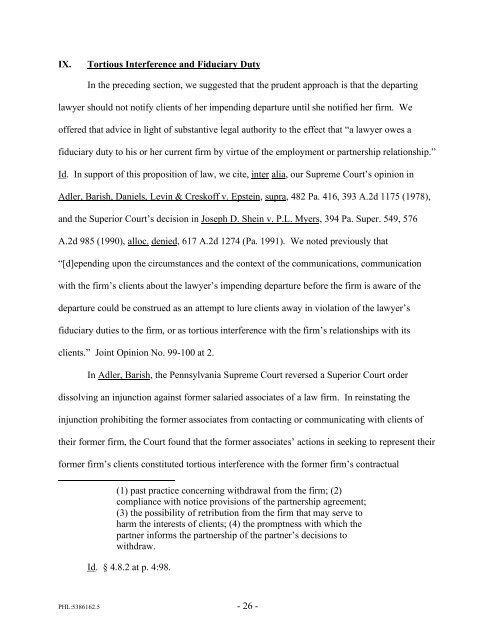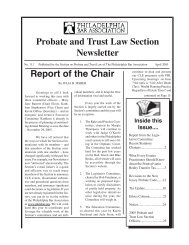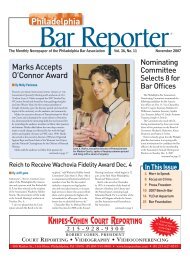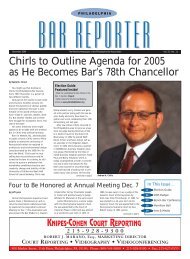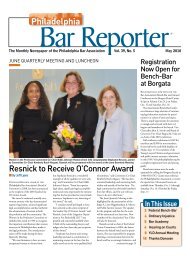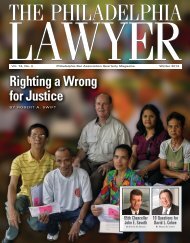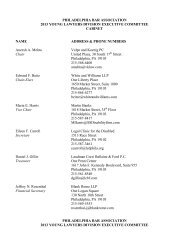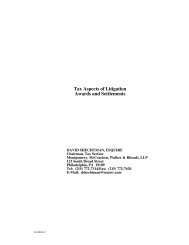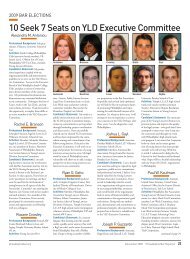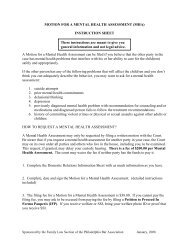here - Philadelphia Bar Association
here - Philadelphia Bar Association
here - Philadelphia Bar Association
Create successful ePaper yourself
Turn your PDF publications into a flip-book with our unique Google optimized e-Paper software.
IX.<br />
Tortious Interference and Fiduciary Duty<br />
In the preceding section, we suggested that the prudent approach is that the departing<br />
lawyer should not notify clients of her impending departure until she notified her firm. We<br />
offered that advice in light of substantive legal authority to the effect that “a lawyer owes a<br />
fiduciary duty to his or her current firm by virtue of the employment or partnership relationship.”<br />
Id. In support of this proposition of law, we cite, inter alia, our Supreme Court’s opinion in<br />
Adler, <strong>Bar</strong>ish, Daniels, Levin & Creskoff v. Epstein, supra, 482 Pa. 416, 393 A.2d 1175 (1978),<br />
and the Superior Court’s decision in Joseph D. Shein v. P.L. Myers, 394 Pa. Super. 549, 576<br />
A.2d 985 (1990), alloc. denied, 617 A.2d 1274 (Pa. 1991). We noted previously that<br />
“[d]epending upon the circumstances and the context of the communications, communication<br />
with the firm’s clients about the lawyer’s impending departure before the firm is aware of the<br />
departure could be construed as an attempt to lure clients away in violation of the lawyer’s<br />
fiduciary duties to the firm, or as tortious interference with the firm’s relationships with its<br />
clients.” Joint Opinion No. 99-100 at 2.<br />
In Adler, <strong>Bar</strong>ish, the Pennsylvania Supreme Court reversed a Superior Court order<br />
dissolving an injunction against former salaried associates of a law firm. In reinstating the<br />
injunction prohibiting the former associates from contacting or communicating with clients of<br />
their former firm, the Court found that the former associates’ actions in seeking to represent their<br />
former firm’s clients constituted tortious interference with the former firm’s contractual<br />
(1) past practice concerning withdrawal from the firm; (2)<br />
compliance with notice provisions of the partnership agreement;<br />
(3) the possibility of retribution from the firm that may serve to<br />
harm the interests of clients; (4) the promptness with which the<br />
partner informs the partnership of the partner’s decisions to<br />
withdraw.<br />
Id. § 4.8.2 at p. 4:98.<br />
PHL:5386162.5 - 26 -


